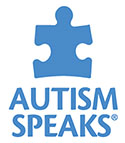What Diet Is Right For You?
What diet is right for you?
What should you be eating? And how should you be eating it? In a world full of trendy fad diets that are all the rage for only a few weeks, it’s hard to know what’s really good for you and your lifestyle. There are a few diets that have been proven to be healthier for both you and the environment time and time again. The broadest, and most popular diet is Vegetarianism.
Vegetarians do not eat meat or fish. For them, any food that is a result of an animal’s death is off limits. There are different types of vegetarians that make their own rules about what they can or cannot eat. For example, pescatarians don’t eat meat, but they can eat fish.
Pros of a Vegetarian diet:
- Lower body weight and BMI
- Healthier cholesterol levels
- Reduces the risk for heart disease, type 2 diabetes, and some cancers
Cons of a Vegetarian diet:
- Higher risk of developing vitamin B12 deficiency
- Takes some time to get adjusted to the diet
- Might be hard to get all the nutrients and proteins
Vegan is a subset of Vegetarian. They are similar, but vegans avoid all animal products. To them, it doesn’t matter if the animal was harmed while the food was made. So, things like eggs, dairy, and sometimes even honey are not a part of their diet.
Pros of a Vegan diet:
- Promotes weight loss
- Reduced risk for serious illness
- More environmentally sustainable than a meat-eating diet
Cons of a Vegan diet:
- Lacking in some vital nutrients
- Reliance on carb-rich foods in order to feel full
- Difficulty when dining out
A Plant-Based diet is a version of Vegan. While having a plant-based diet doesn’t have strict rules like Veganism, it still has goals. It puts emphasis on making sure most of the food you eat comes from plants. However, it’s okay to eat a little meat, dairy, or eggs occasionally.
Pros of a plant-based diet:
- Lowers cholesterol levels
- Promotes weight loss
- Lowers the risk of colon and breast cancers
Cons of a plant-based diet:
- Hard to immediately switch to this diet
- Potential for lack of nutrients
Another popular diet is the Ketogenic diet, or ‘Keto’ for short. This type of diet takes out all, or most of the carbs in your diet, and replaces them with fat. This places the body in a state called ketosis, and makes it incredibly efficient at burning fat.
Pros of a Keto diet:
- Promotes weight loss
- Used to treat epilepsy
- Reduces risk of type 2 diabetes
Cons of a Keto diet:
- Possible gut health issues
- Keto flu, which is trouble transitioning into the diet
- Hard diet to adhere to
The last “diet” is called Intermittent Fasting. This doesn’t limit what types of foods you eat, but rather when you eat them. Humans fast when we sleep, so this diet extends this fasting period for a bit longer. Most people who fast intermittently follow the 16/8 rule, meaning that for a 16 hour period, which usually includes overnight, they cannot eat anything. Then, for the remaining 8 hours, they can eat how they please.
Pros of intermittent fasting:
- Extends the body’s natural cleansing process
- Improved alertness and attention
- Eating more mindfully
Cons of intermittent fasting:
- Can interfere with focus
- Not sustainable
- LDL cholesterol levels can increase
There are many rumors swirling around the diet culture. What works for someone else may not work for you. And while one way of eating may have more extreme effects than the other, the most important thing to consider is your own health. Remember, each diet will affect each person differently so do your homework and consult with your physician.
Be well.





